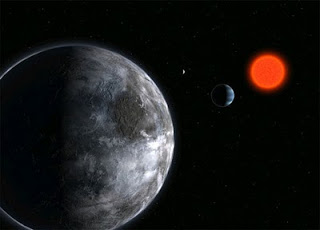
UFO sightings have been accounted around the world, and the subject of alien life has been featured in countless books and movies. However, no scientific proof yet about the existence of extraterrestrial life in planets of our solar system.
Astronomy and astrobiology researchers Rory Barnes and Rodrigo Luger do not believe that other planets in our solar system can support life. But they do theorize that our galaxy supports life.
The researchers believe exoplanets or planets not orbiting our sun that are about the size of Earth host alien life. These potentially habitable bodies, unlike Earth, they have thick hydrogen and helium gaseous atmospheres. Their characteristics are more like Neptune, earning them a nickname “mini-Neptune.” Located around M dwarfs, they were first formed when they were way out past the snow line, just like Saturn, Jupiter, and Neptune. The location of these mini-Neptunes is very cold to support life.
M dwarfs are stars with much longer lifetimes and smaller than the sun. Being 50 times dimmer than the sun, they give off lesser amount of heat. The planet could become habitable if it is close to the star because of enough heat.
Ph.D. student in astrobiology and astronomy Rodrigo Luger said that in the first million years or so some of them would have been ended up in the habitable zone while migrating in.
Once mini-Neptunes managed to enter the habitable zone, their gaseous atmosphere would evaporate because of the solar radiation from the active M dwarf. This scenario would result in a rocky, icy core. These frozen bodies could become habitable, and they could be there today.
Luger said that finding and characterizing these planets could happen in the next 5 to 10 years, but human travel outside the solar system is still considered as science fiction as of today.


Leave a Reply